Members of De Jonge Akademie
The Young Academy is a dynamic and innovative group of top young scientists and scholars with outspoken views about science and scholarship and the related policy. The Young Academy organises inspiring activities for various target groups focusing on interdisciplinarity, science policy, and the interface between science and society.
Website dejongeakademie.nl
Dr Saskia Peels-Matthey
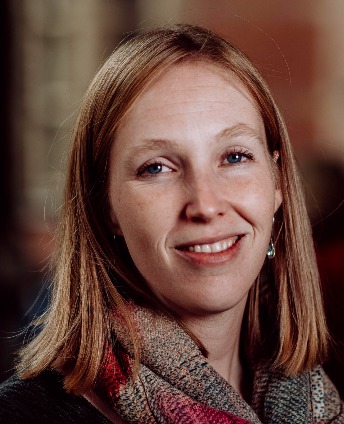
Saskia Peels-Matthey (1982) is an assistant professor of Ancient Greek at the Faculty of Arts. Peels-Matthey conducts research on religion in ancient Greece. She is particularly interested in what 'believing in gods' meant for the Greeks, the influence their beliefs had on how they shaped their actions and worldview, and how this changed over time. She is currently working on an NWO Veni project on polytheism (belief in multiple gods) in ancient Greece. Additionally, she co-authors a monograph on rituals in which people imagined direct interaction with and proximity to the gods, exploring the religious imagination associated with these rituals. Peels-Matthey incorporates insights from other disciplines such as cognitive linguistics, psychology, and artificial intelligence to address her research questions.
Dr Ward Rauws

Ward Rauws (1985) is an associate professor of Spatial Planning at the Faculty of Spatial Sciences. Rauws researches how planners can manage challenges such as climate change, energy transition and an aging population while their influence is limited. He also analyses how planners can make smarter use of the ingenuity of residents and users and the know-how they have gained from experience. This creates a new perspective on the social significance of spatial planning: planning interventions and policies serve not only to solve problems that we know and understand, but also to prepare cities for the unknown and unexpected. Rauws is honored to join The Young Academy and looks forward to representing geography and planning and is commited to better policy in the field of sustainability, team science and transdisciplinary research.
Dr Léonie de Jonge
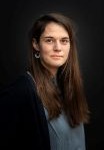
Léonie de Jonge is an assistant professor of European Politics & Society at the Faculty of Arts. She studied International Relations at Cornell College in Iowa and obtained her Master’s degree and PhD in Politics & International Relations at the University of Cambridge. Her PhD focused on the successes and failures of right-wing populist parties in Belgium, the Netherlands, and Luxembourg (the Benelux). De Jonge is trying to understand the rise and normalization of the far-right in the twenty-first century. In 2021, she joined the Young Academy Groningen. In this network, she focuses on academic freedom and achieving, maintaining, and protecting this.
Prof. Lisa Herzog
Lisa Herzog works at the interface of political philosophy and economic theory. Between 2016 and 2019, she was Professor of Political Philosophy and Theory at the Technical University of Munich. Since 2019, she has been working at the Faculty of Philosophy and the Centre for Philosophy, Politics and Economics at the UG. Herzog has published on the philosophical dimensions of markets (both historical and systemic), liberalism and social justice, ethics in organizations, and the future of work. The current focus in her work lies on democracy in the workplace, professional ethics, and the role of knowledge in democracies. Other topics close to her heart include diversity and interdisciplinarity. Herzog is also a member of the Young Academy Groningen.
Dr Else Starkenburg
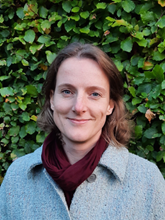
Else Starkenburg completed her PhD at the Kapteyn Astronomical Institute of the UG. From 2012 to 2014, she worked as a postdoc at the University of Victoria in Canada. Hereafter, she moved to the Leibniz Institute for Astrophysics in Germany, where she established her own independent research group. Since September 2020, she has returned as a tenure track staff member to the Kapteyn Institute, where she works together with a PhD student and other members of the Institute. Her interests lie in the early history of the Milky Way and its surrounding galaxies. A number of Starkenburg’s projects are focused on the first generations of stars in these galaxies, which contain valuable information on the early years of our Milky Way and on the circumstances of the early universe in general.
Prof. Michel Vols
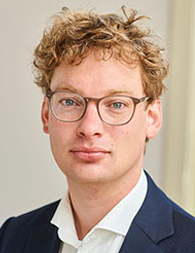
Lawyer Michel Vols (1984) examines the delicate balance between effectively tackling disturbances of public order and respect for human rights.
He combines classical legal science with innovative (behavioural) theories and innovative (data science) methodologies. He collects and analyzes legal big data with the help of artificial intelligence to find patterns and determinants within legal decision-making. Within the De Jonge Akademie, Vols wants to bring people in neighborhoods with social, physical and economic problems into contact with scientists.
Dr Nanna Hilton
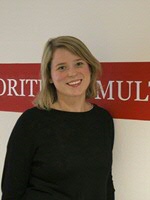
Nanna Haug Hilton (1981) specializes in sociolinguistics. She actively involves the public in her research by, for example, conducting research together with non-researchers and using modern methods such as apps. In addition, she presents the UG podcast In de wetenschap and is working on two MOOCs. Hilton helped to devise the Bachelor’s degree programme in Minorities & Multilingualism at the UG, and was part of the small team that set up the Master’s programme in Multilingualism. On joining The Young Academy, Hilton intends to continue promoting citizen science projects in line with her research.
Prof. Marie-José van Tol
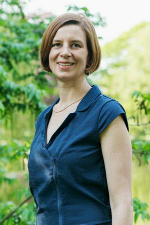
Marie-José van Tol (1980) is exploring the role of the brain and cognition in the development and continuation of mental disorders such as depression and anxiety, and specific symptoms including suicidal tendencies. She and her team aim to improve the treatment and prevention of mental problems by, for example, finding ways of predicting which treatment will work best for which groups of people. Van Tol is also a keen proponent of involving the general public in science and research. Working with the Netherlands Brain Foundation in 2017, she set up a public laboratory in which she demonstrated that people who are prone to irritability subconsciously focus more on negative information than on positive information. During her time at The Young Academy, Van Tol wants to explore the impact that major and minor collaborative grants have on young researchers. Van Tol won the Heineken Young Scientist Award.
| Last modified: | 08 February 2024 10.04 a.m. |
